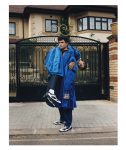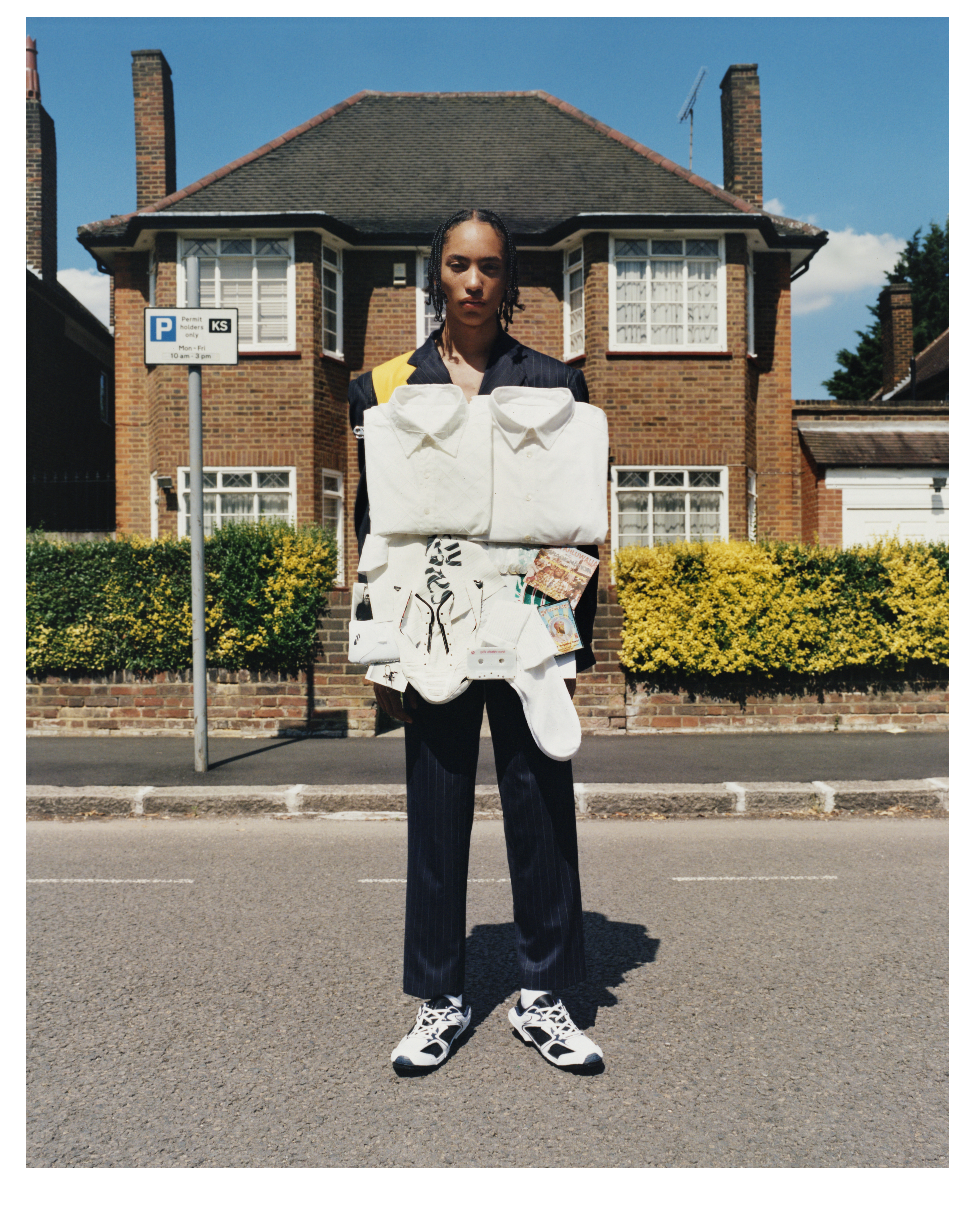
Jacket, £700, trousers, £300, and trainers, all by Ahluwalia Studio.
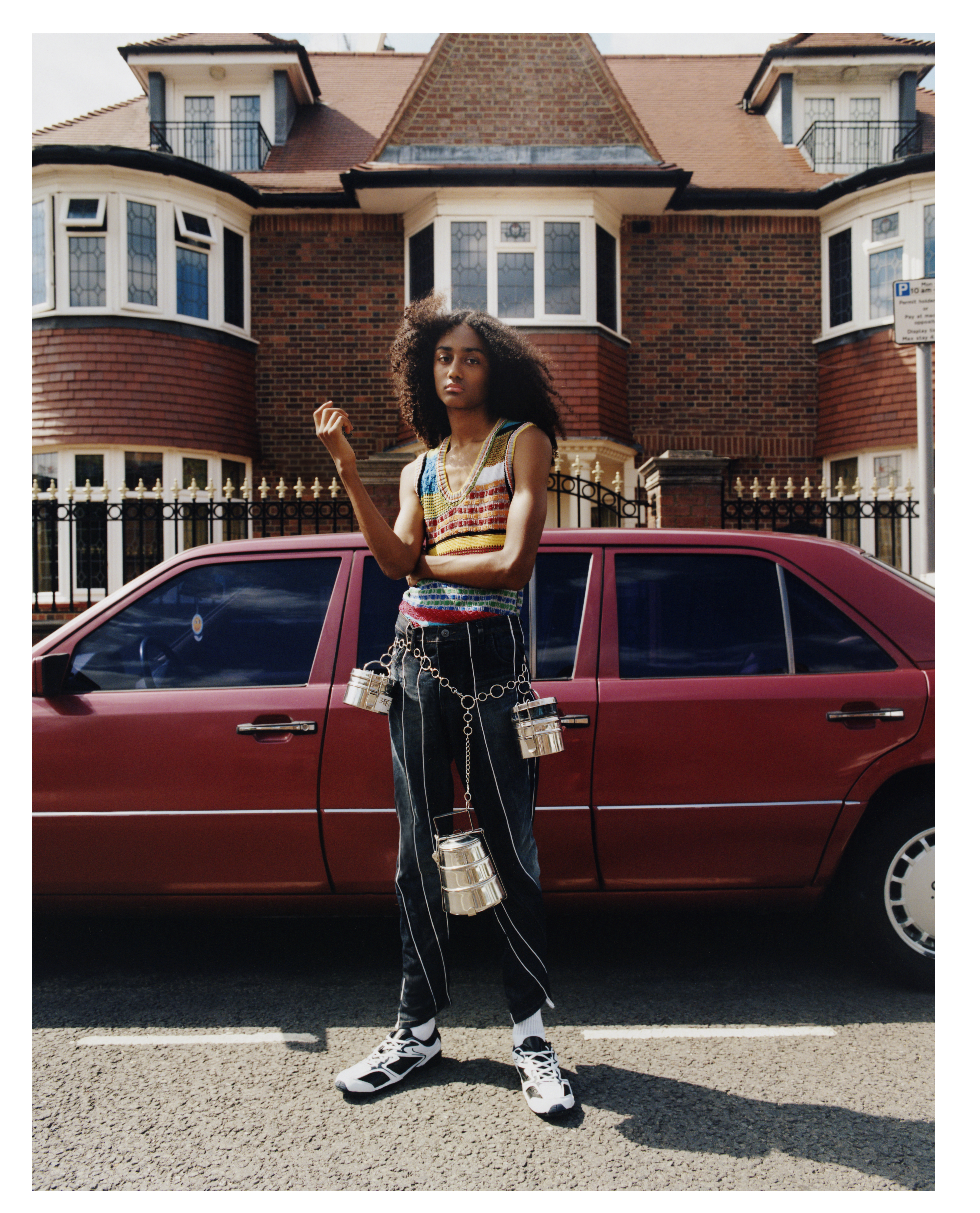
Knit, £700, jeans, £285, and trainers, all by Ahluwalia Studio
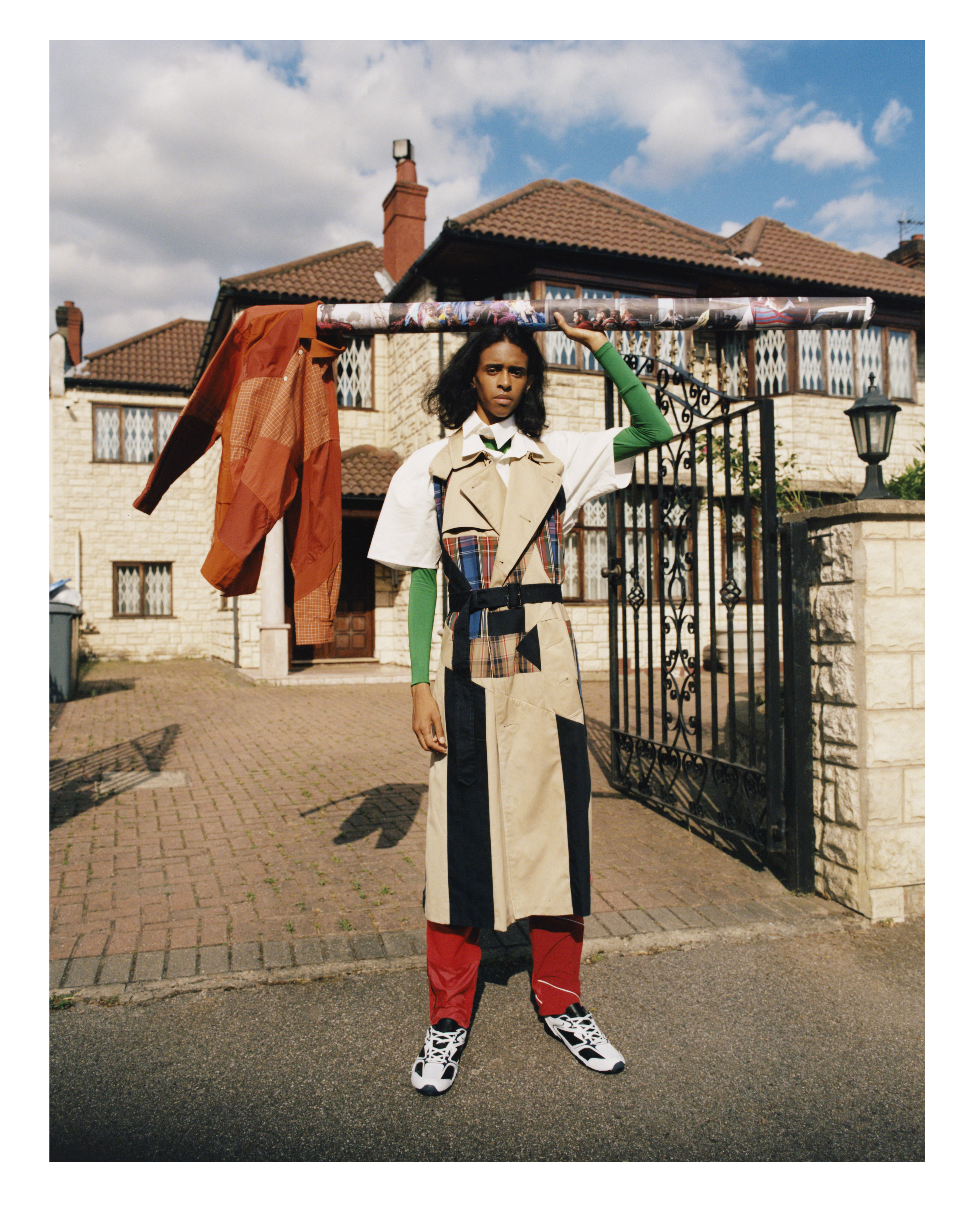
Trench, £550, patchwork shirt, £250, white shirt, £125, trousers, £350, and trainers, all by Ahluwalia Studio
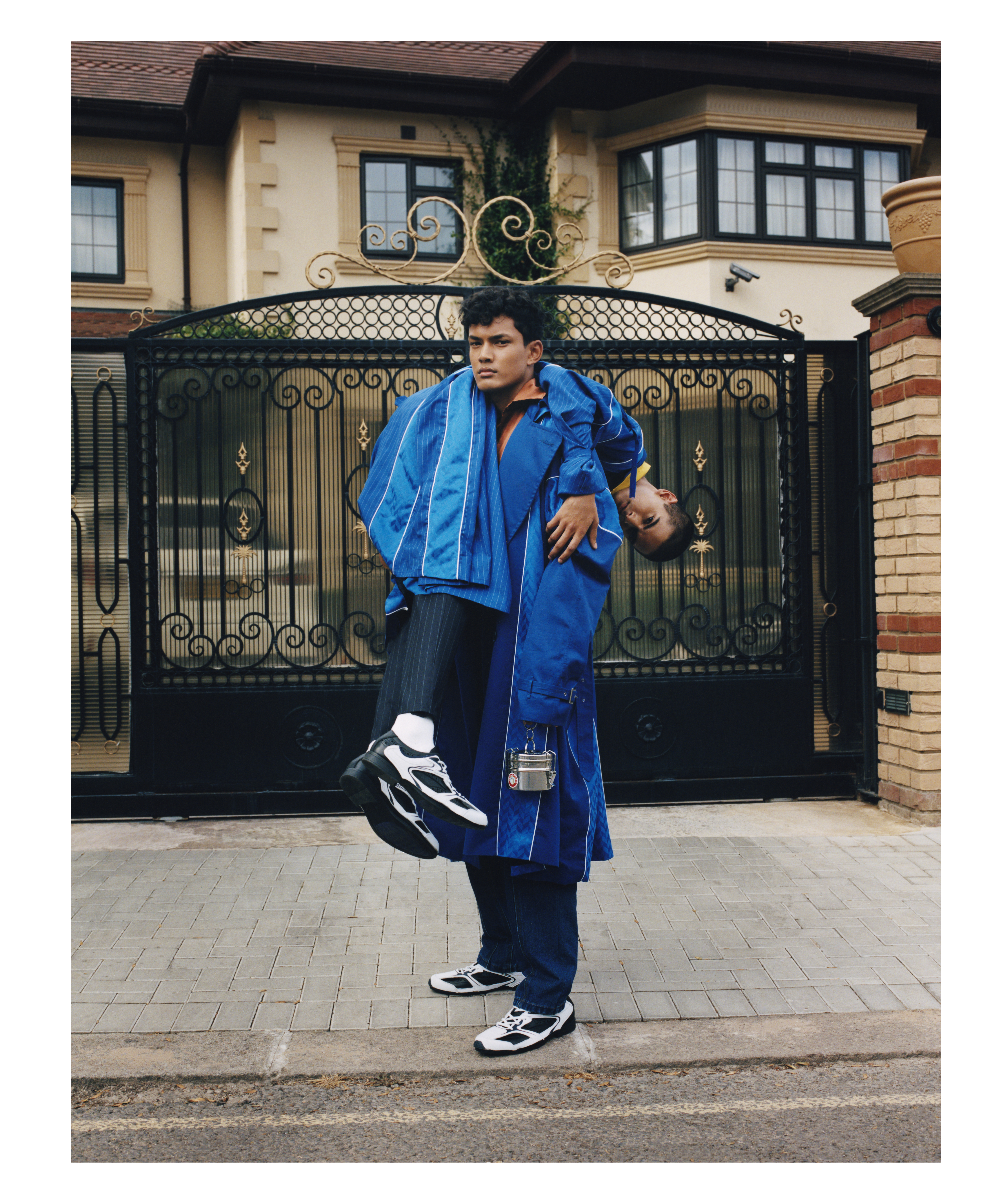
Coat, £750, trousers, £300, shirt, £200, jeans £200, and trainers, all by Ahluwalia Studio

Priya wears jacket, £700, by Ahluwalia Studio.
“A societal change needs to occur in order to shift our spending and I think my generation is slowly but surely pushing these issues on to the agenda and making people listen”
Priya Ahluwalia
There’s a saying we’ve all heard a thousand times that goes “waste not, want not”. It’s one that designer Priya Ahluwalia has turned wholly on its head. Using existing waste clothing, she creates upcycled garments that make you want them all the more.
The London-born designer, winner of the H&M Design Award 2019, was on a research trip in Nigeria when she discovered the driving inspiration for her debut collection of striped and brightly hued pieces. “I kept noticing the street traders in Lagos wore T-shirts emblazoned with things like London Marathon 2012,” she explains, “but I couldn’t understand why they had them. One man told me that his was from a market in the city that sold imported second-hand clothing.” As it turned out, Ahluwalia had stumbled across the worldwide industry by which the discarded results of our fast-fashion culture, sometimes from charity donations, are sold off in bulk for profit and exported to places like Lagos to be recycled.
From Lagos, Ahluwalia travelled to the Indian city of Panipat, the global capital of second-hand clothing. She produced a book of photographs from the journey, entitled Sweet Lassi, to accompany her collection. “My aim was to raise awareness about how much we as a society in the West consume, throw and give away, and what this does outside of our bubble.” The imagery from Panipat depicts warehouses filled with mountains of clothing co- ordinated by colour; it is at first stunning in its vivid splendour, and then unnerving as we realise the sheer quantity of clothes on display. “It wasn’t just upcycling that came as a direct response to my visit,” Ahluwalia says. “It was seeing the men in India and Nigeria too, what they wore and the confidence with which they wore it; I saw someone in the most amazing vintage green, yellow and black Tommy Hilfiger polo top.” The tracksuits, trench coats, sports tops and suiting of her collection reflect this same exuberance, patched together from patterned repurposed cloth, recycled yarn, sustainable bamboo Lycra and textiles sourced from Sewa Delhi, an organisation that teaches rural Indian women traditional textile techniques.
The designer jokes that she doesn’t want to draw in customers solely for her ethical production practices. “I want people to enjoy the clothes because of their aesthetics, too, not just because they’re made out of bamboo,” she says. “I want the clothes to excite people.” The problems with the consumption of cheap clothing go hand in hand with people investing a little more into a responsibly made garment that will last a long time. It’s a cycle that we all fall prey to, including Ahluwalia herself. “I used to ‘over-buy’ a lot when I was younger. I understand what it feels like to shop for enjoyment, and that if you have some money for clothes you want as many garments as you can get instead of one.” Establishing herself in a knowingly flawed system – grappling with the dichotomy of creating garments while being concerned about consumption – isn’t something that Ahluwalia puts to the back of her mind. “I have pondered this a lot. I know that I love design, but I try to do it in the most socially responsible way I can. The idea of sustainable manufacturing needs to be adapted from within, throughout the supply chain.”
The impact we have on our environment and the urgency with which we need to change our behaviours make it an issue that is fraught with frustrations, particularly at those who don’t adhere to ecologically friendly thinking. But Ahluwalia doesn’t see a benefit in using admonishment to win people over. “I just think that there are better ways to spread a message than by being preachy. Would it be fair or ethical to cap someone’s spending? No. I really believe in people having the liberty to make their own choices. Somehow a societal change needs to occur in order to shift our spending and I think my generation is slowly but surely pushing these issues on to the agenda and making people listen.” And if the clothes look as good as this, you can’t help but hear what Priya has to say.
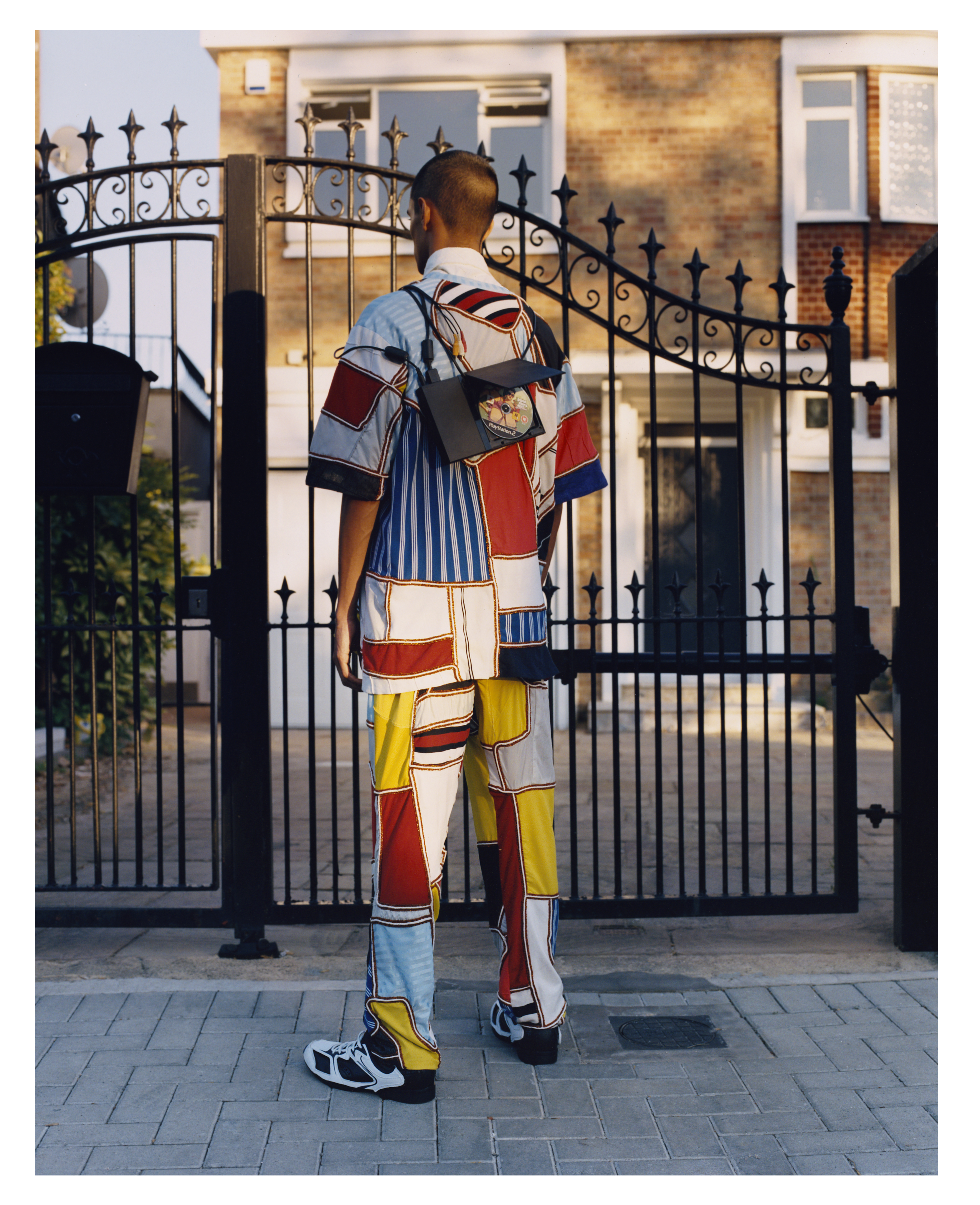
Top, £600, trousers, £400, and trainers, all by Ahluwalia Studio.
Models: Andrew Nelson, William Soames and Robin Shrestha at Storm, Zakaria Khiare at Troy and Jameel Hussey at The Squad. Casting: Lisa Dymph Megens. Photography assistant: Annabel Snoxall

